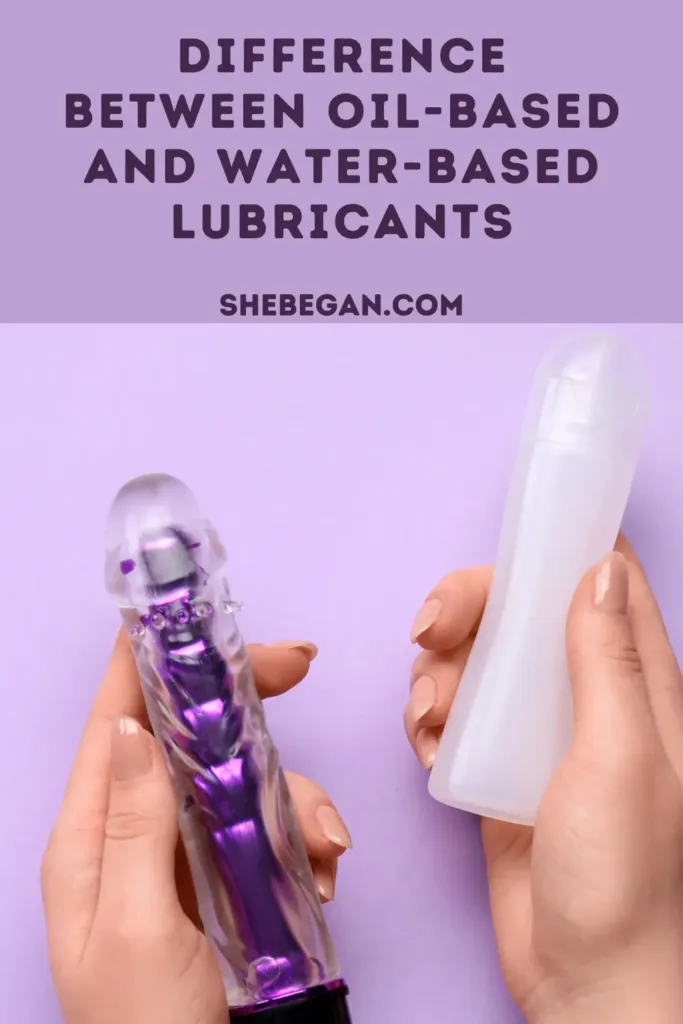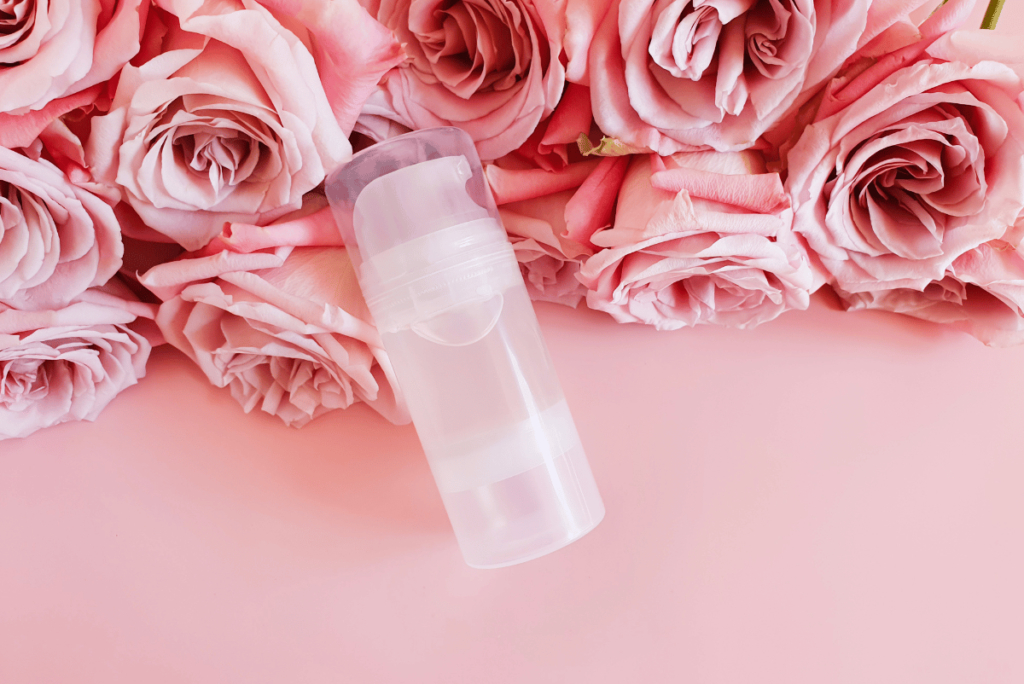When it comes to lube, there is a wide variety of uses in a multitude of different situations. Lubricants are used in medical procedures, industrial applications, personal intimacy, etc. However, we’ll only be concerned with the use of lube in the bedroom.
Lubricant is often used to reduce friction and enhance pleasure in sexual activities, ranging from very simple to much more thorough types. While there are many brands of lube out there, there are really only two main types of lubricant; water-based lube and oil-based lube.
The key difference between these two lubricants lies in their base ingredients. While Water-based lubricants contain natural thickening agents found in plants, oil-based lubricants, as you can imagine, contain oils such as coconut, sunflower, or even synthetic oils.
Our goal here is to take a deeper dive into the similarities and differences between water-based and oil-based lubricants so that you can go into your next sexual experience with a better understanding of your lubricant options.

Water-Based Lubricants
As you can impart from the name, water-based lubricants are made from water as well as other natural or synthetic ingredients.
What’s it made of?
Its liquid consistency is supposed to mimic the natural lubrication of the female body. Water-based lube also contains natural thickeners which create the well-known smooth texture.
Advantages
Compatibility With Condoms and Sex Toys
Due to water-based lubes not containing silicone or mineral oils, they can be used with all types of toys. These toys can even be made of different materials such as metal, plastic, glass, and even silicone.
Water-based lube is also compatible with natural rubber latex and polyisoprene condoms. Since this lube doesn’t stimulate the growth of bacteria or trap bacteria, it is great for use with other devices.
Easy Clean-Up
One of the biggest advantages of water-based lube is how convenient it is to clean up after use. Water-based options won’t leave behind a sticky residue, and they can be easily wiped away with a damp cloth. This is, in large part, due to its texture closely resembling natural bodily lubricant.
Non-Staining Properties
A big reason why water-based lubes are a popular choice is their non-staining properties. Unlike other lubes, water-based won’t stain clothing or bedding. This is ideal for keeping your articles looking fresh and your bed sheets out of the washer.
Suitable for Sensitive Skin
Generally, water-based lubes tend to be kinder to the body because they have fewer chemicals and more natural ingredients. Water-based lubricants typically contain a hydrating formula which makes them apt for those experiencing dryness and discomfort during sex.
This natural-feeling lubrication is also matched to vaginal pH. This match-up helps protect the vaginal environment from bacterial and yeast infections. Water-based lubricants are even used at gynecology clinics to minimize discomfort.
Disadvantages
May Require Reapplication
Unlike other kinds of lube, water-based lube may need to be reapplied during sex. This may be frustrating for some, as you may find yourself going through the product faster than you would like.
More Interruptions
As you can imagine, having to re-apply the lube more often will result in more unwanted breaks from that special time of night. While this may seem minor, some people might disagree.
Oil-Based Lubricants
An oil-based lubricant is, you guessed it, composed of oil ingredients as well as other ingredients. While some may argue that water-based lubricants are more popular, there is a long history and following behind the oil-based lubricant.
Composition
Oil-based lubricants may contain plant-based oils such as sunflower seed oil, sweet almond oil, or coconut oil. Many of these lubes may also contain synthetic oils.
Advantages
Long-lasting Lubrication
Oil-based lubricants last much longer compared to water-based options, as they don’t dry up quickly or get absorbed by the skin. This is due to the high content of natural plant oils present.
Suitable for Water-Based Activities
Oil-based lube is waterproof, meaning that it won’t wash off instantly once it comes into contact with water. This makes it perfect for those special water-based activities.
Smooth and Silky Texture
Unlike water-based lubricants, oil-based can provide twice the lubrication, meaning twice the sensation. Due to their smooth and silky texture, oil-based lubes can feel wondrous on the skin.
The natural oils make it a great skin conditioner as well. Many people actually use oil-based options for massages. Oil-based lubricants are also generally easier to spread.
Disadvantages
Not Compatible with Latex Condoms
Oil-based lube cannot be used with latex condoms. The plant oils can erode the condom material, which can compromise its integrity. For more reasons than one, the last thing you want is for the condom to break while you’re having sex.
Can Stain Fabrics
Unlike water-based lube, oil-based is far messier and can stain your sheets and clothing. The oils don’t mimic natural lubricants in the same way as water-based, so they don’t absorb into fabrics as well.
May Not Be Suitable for Sensitive Skin
Oil-based lubricants may trap bacteria, creating an environment for infections to flourish and reactions to follow. Oil-based lube can also lack the hydration and nourishment water-based lubes contain. Oil-based lubes cannot penetrate the deeper levels of the skin.
Choosing the Right Lubricants for Your Needs

Factors to Consider When Selecting a Lubricant
Compatibility With Condoms and Sex Toys
Both water-based and oil-based lubricants can be used with sex toys. However, as we discussed oil-based lubes can be trickier to clean off and they’re not compatible with certain condoms. So, when deciding between these two, consider what toys and prophylactics you use.
Skin Sensitivity
When selecting a lubricant, it is in your best interest that you choose one that’s free of chemicals. These chemicals, such as glycerin, can encourage the growth of bacteria and lead to infections.
Additionally, you want to avoid lubes containing petrochemicals which can cause burning or stinging sensations. If you prefer oil-based, seek out natural plant oils that are kinder to the body, as well as paraben-free water-based lubes that are perfectly safe for your skin.
Duration of Use
As we previously touched on, water-based and oil-based lubes vary in how long they last. Water-based lubes absorb quicker, meaning you’ll have to reapply often. You’ll go through the product faster as well, compared to oil-based options. Think about how often you’ll be using the lube and how frequently you’re willing to get another product.
Preference for Texture and Sensation
Water-based lube has a more natural feel, resembling bodily lubrication. For some people, this is a huge upside. On the other hand, oil-based lube has a velvety texture that feels especially soft on the skin. If you and your partner put a big emphasis on foreplay, oil-based lube may serve you better.
Choose What’s Best for You
By now, you thoroughly understand some of the key differences between water- and oil-based lubes. Each type comes with its advantages and disadvantages. It’s not enough to simply say one is better than the other. What it comes down to are your own specific needs and tastes.
The right lubricant will align with what suits you best, it’s just a matter of figuring out your preferences, so you may want to explore and experiment with various types.






